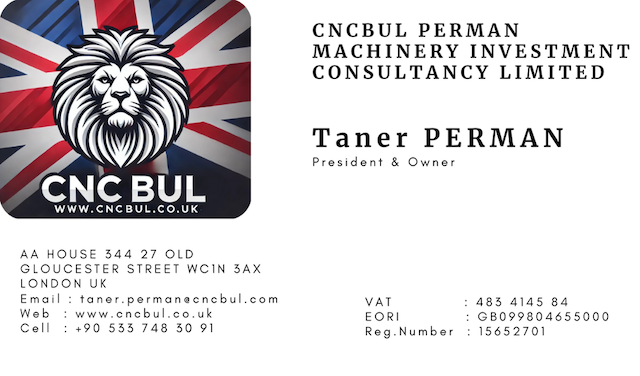What are the ideal requirements for creating a machine service of CNC Machine Tools machinery sector?
Creating a machine service for the CNC Machine Tools machinery sector requires a comprehensive approach that addresses technical, operational, and customer service aspects. Here are the ideal requirements for setting up such a service in great detail:
Technical Requirements
- Skilled Workforce:
- Technicians and Engineers: Employ highly trained technicians and engineers with expertise in CNC machinery. Certifications and continuous training programs are essential to keep up with the latest technologies and service techniques.
- Specialists: Include specialists for different types of CNC machines (e.g., milling, turning, grinding) and different brands.
- Diagnostic Tools and Equipment:
- Advanced Diagnostic Tools: Utilize state-of-the-art diagnostic tools for troubleshooting and identifying issues accurately.
- Calibration Equipment: Maintain precise calibration tools to ensure the machines are operating within specified tolerances.
- Spare Parts Inventory: Keep a well-stocked inventory of critical spare parts and components to reduce downtime during repairs.
- Software and IT Infrastructure:
- Maintenance Management Software: Implement Computerized Maintenance Management Systems (CMMS) to schedule, track, and document all maintenance activities.
- Remote Monitoring Systems: Use IoT and remote monitoring technologies to track machine performance and predict maintenance needs.
- Data Security: Ensure robust cybersecurity measures are in place to protect sensitive machine and production data.
Operational Requirements
- Service Process and Protocols:
- Standard Operating Procedures (SOPs): Develop detailed SOPs for all maintenance and repair activities to ensure consistency and quality.
- Preventive Maintenance Schedules: Establish comprehensive preventive maintenance schedules to minimize unexpected breakdowns.
- Emergency Response: Create protocols for rapid response to emergency service calls, including a 24/7 helpline.
- Quality Control:
- Inspection and Testing: Implement rigorous inspection and testing procedures post-repair to ensure the machine’s functionality and performance.
- Feedback Loop: Establish a system for capturing customer feedback and using it to continuously improve service quality.
- Logistics and Supply Chain Management:
- Efficient Supply Chain: Develop strong relationships with suppliers to ensure quick access to parts and materials.
- Inventory Management: Use advanced inventory management techniques to maintain optimal stock levels of parts and tools.
Customer Service Requirements
- Customer Support:
- Technical Support: Provide robust technical support, including phone, email, and on-site assistance.
- Customer Training: Offer training programs for customers on machine operation, routine maintenance, and troubleshooting.
- Service Contracts:
- Flexible Service Plans: Offer various service plans, including full-service contracts, preventive maintenance plans, and emergency service options.
- Clear Terms and Conditions: Ensure all service contracts have clear terms, including response times, service scope, and pricing.
- Communication and Transparency:
- Regular Updates: Keep customers informed about the status of their service requests and maintenance schedules.
- Service Reports: Provide detailed service reports after each maintenance or repair job, outlining the work done and any recommendations.
Strategic Requirements
- Market Research and Analysis:
- Industry Trends: Stay updated with the latest trends and advancements in CNC technology and manufacturing practices.
- Customer Needs: Conduct regular surveys and interactions to understand customer needs and expectations.
- Business Development:
- Partnerships and Alliances: Form partnerships with CNC machine manufacturers and other stakeholders to offer comprehensive service solutions.
- Marketing and Outreach: Develop a strong marketing strategy to promote your service offerings and reach potential customers.
- Sustainability and Innovation:
- Green Practices: Implement environmentally friendly practices, such as proper disposal of waste materials and energy-efficient operations.
- Innovation: Continuously invest in research and development to adopt new technologies and improve service offerings.
Regulatory and Compliance Requirements
- Health and Safety:
- Safety Protocols: Adhere to stringent health and safety protocols to protect service personnel and customers.
- Compliance: Ensure compliance with all relevant local, national, and international safety standards and regulations.
- Environmental Regulations:
- Waste Management: Implement proper waste management practices, including recycling and safe disposal of hazardous materials.
- Energy Efficiency: Aim to reduce energy consumption in service operations through efficient practices and equipment.
Financial and Administrative Requirements
- Budget and Investment:
- Initial Investment: Secure sufficient initial investment for setting up the service infrastructure, including tools, equipment, and software.
- Ongoing Costs: Plan for ongoing costs such as salaries, parts inventory, training, and marketing.
- Pricing Strategy:
- Competitive Pricing: Develop a pricing strategy that is competitive yet sustainable, offering value for money to customers.
- Transparent Billing: Ensure transparent billing practices, with clear breakdowns of labor, parts, and other charges.
- Financial Management:
- Accounting Systems: Implement robust accounting systems to manage finances, track expenses, and generate financial reports.
- Revenue Streams: Diversify revenue streams through different service offerings, such as preventive maintenance plans, training programs, and consultancy services.
Conclusion
Setting up a machine service for the CNC Machine Tools machinery sector requires a multidisciplinary approach that integrates technical expertise, operational efficiency, exceptional customer service, and strategic planning. By focusing on these requirements, you can establish a service that not only meets but exceeds customer expectations, ensuring long-term success and growth in the competitive manufacturing industry.

